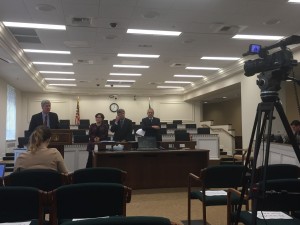After 80 cumulative days in session, the Washington State Legislature adjourned sine die around 11:30 pm on Tuesday, March 29th. It marked the end of the 2016 Legislature and the special session that convened following the end of the regular session on March 10th. After hard-fought negotiations on important policy issues, the House of Representatives and Senate agreed on both a supplemental operating and supplemental capital budget. The Legislature debated 1,818 pieces of legislation, passing 292 to be signed into law by Governor Inslee.
Operating Budget
The supplemental operating budget increases spending from the 2015 biennial budget by $191 million. The Legislature prioritized $14 million towards addressing homelessness, $7 million towards recruiting and retaining public school teachers, and $41 million towards mental health programs. In addition to the new spending, $190 million was redirected from the Budget Stabilization Account (also known as the Rainy Day Fund) to address the damage done by the record-breaking wildfires of 2015. This budget does not raise taxes or include an increase to base teacher pay, both ideas that received much attention during the beginning of the session.
Evergreen will be experiencing a negative fiscal impact in ‘backfill’ tuition revenue from the tuition reduction plan passed in 2015. Due to lower than projected enrollments, we have a loss of $132,000 in state funding.
The operating budget also includes several provisos that are relevant to Evergreen and the higher education sector in Washington:


